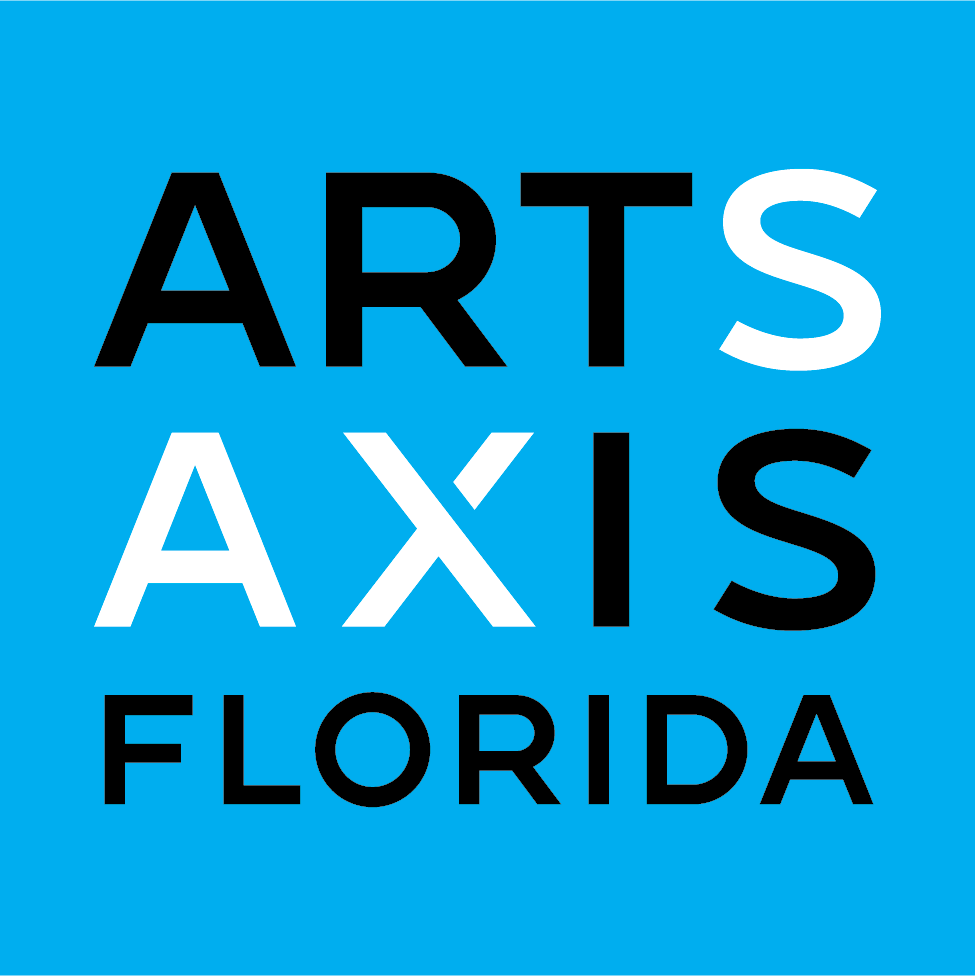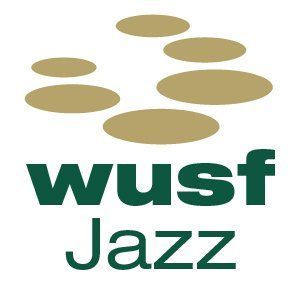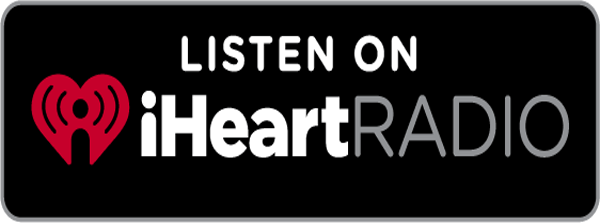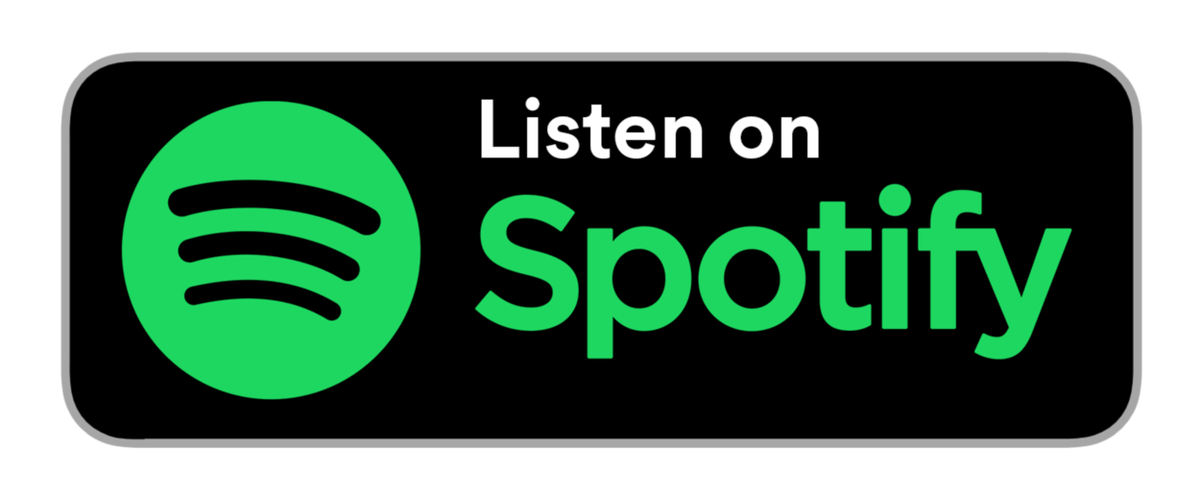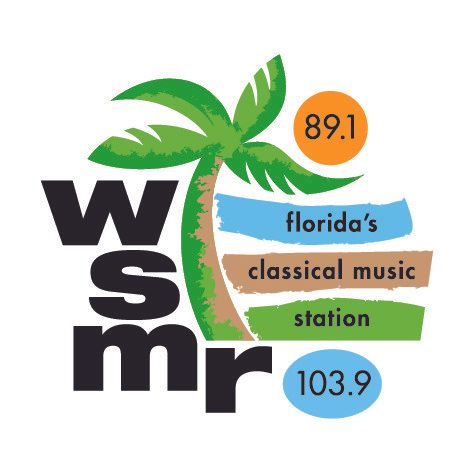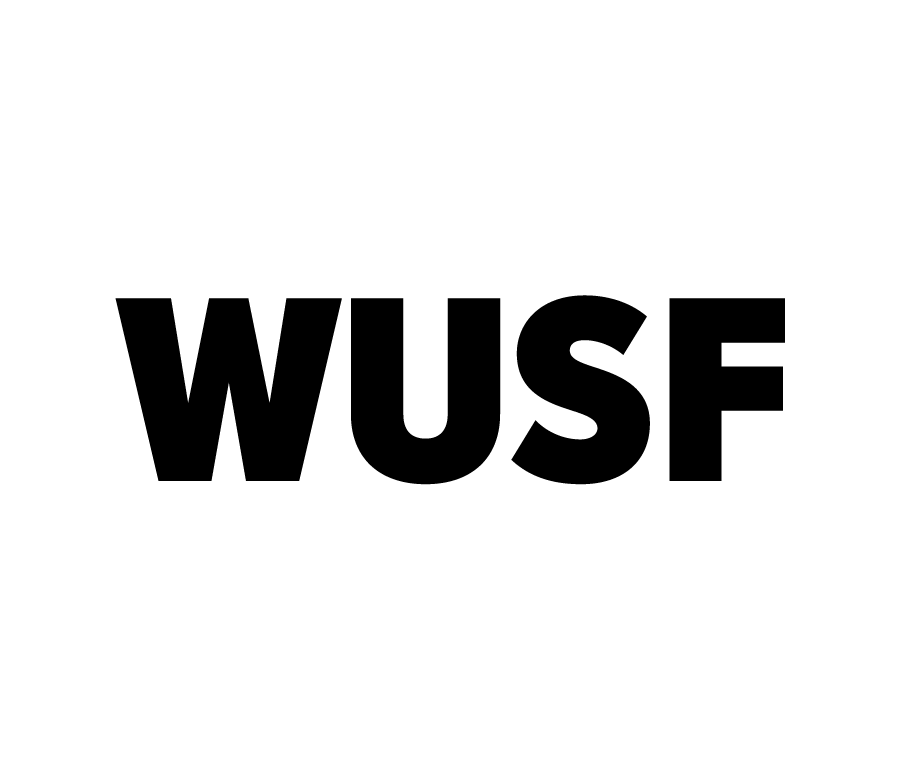Malaika Hollist
Welcome to the Arts Axis Florida Podcast series, When Freedom Rings. In this six part series, we speak with our black and brown community on what has transpired in the art world since the emancipation of slavery on June 19th, 1865. We have open conversations on their experiences as people of color and their contributions to art, community and education. The series highlights their continued efforts to move the needle forward. This is When Freedom Rings.
Welcome to Episode one, Juneteenth. The newly minted federal holiday is a lot more than just another day off from work. Today, we speak with an educator and professor at USF, Geveryl Robinson, on the history before, during and after the day we now call Juneteenth From the significance of the color of the flag to how her experiences have brought her to where she is today, she says that this is no ordinary holiday and before we celebrate, let's educate!
00;01;00;20 - 00;01;15;14
Malaika Hollist
Today for our first episode, we will be discussing Juneteenth. And we have our guest, Geveryl Robinson, here with us today. So would you please just introduce yourself to our audience.
00;01;15;15 - 00;01;49;05
Geveryl Robinson
A brief introduction. I'm a Baltimore native and I am the proud daughter of the late Bishop Harvey Robinson and my mom, Catherine, who were married for 62 years before he died. And I'm bringing that up because when we get into my love for black history there, they were so instrumental in that. I teach at the University of South Florida, St Petersburg, and I'm a proud member of Sigma Gamma Sorority Incorporated.
00;01;49;10 - 00;02;03;25
Malaika Hollist
Before we get into June 19th 1865, we really need to talk about what was happening before that. So could you give us just a brief, if it can be brief idea of what was going on now.
00;02;03;25 - 00;02;34;01
Geveryl Robinson
You know, OK, so the Civil War actually didn't end until 65, even though the Emancipation Proclamation was signed at 63. But before that of course you know, everyone knows about slavery. But what I think is what's fascinating to me about that time period is that even in the midst of black people being enslaved, there were so many black people who were doing incredible things.
00;02;34;10 - 00;02;53;05
Geveryl Robinson
In the midst of that. For example, you know, black people were not considered to be citizens of the United States, which is why a lot of people, when they talk about the national anthem, which was written in 1840, it didn't include us. Right. And so there were a lot of black people.
00;02;53;05 - 00;02;53;24
Malaika Hollist
00;02;54;00 - 00;03;19;06
Geveryl Robinson
You know, in northern states were inventors and in southern states, but they couldn't receive patents for things because they weren't citizens. And the only way you could get a patent was to be a citizen. And so one person I'm going to talk about and I think this is important because what I like to stress about black people, a lot of, a lot of what people know about us is just slavery and civil rights.
00;03;19;06 - 00;03;45;19
Geveryl Robinson
Right. You know, and I think it's important to know that, yes, in the midst of that slavery in 1821, Thomas Jennings was the first black person to receive a patent. He was in New York the way he had to get that patent. He was also one of the first black people that they considered to be a citizen because you couldn't get a patent without being a citizen.
00;03;45;28 - 00;04;13;18
Geveryl Robinson
And the reason why they did that was because what he patented was dry cleaning oh yeah. He called it dry scouring. But it is exactly what we're doing now. But I guarantee you, if you Google Thomas Jett black man dry cleaning, you will see his name. And so dry cleaning, is it black or white? Exactly. And everybody does it, but people don't know that.
00;04;13;18 - 00;04;35;27
Geveryl Robinson
And he actually his wife was actually a slave. And so because she was a slave, she couldn't become a full she couldn't be free, but she became an independent indentured servant. And then he eventually bought her freedom, freedom for that. But that that's what was going on in the midst of all the misery and everything that black people faced being slaves.
00;04;35;27 - 00;04;44;15
Geveryl Robinson
There were so many of us, and there was progress going on that has impacted us from then until now.
00;04;44;23 - 00;05;03;24
Malaika Hollist
Amazing, I didn't know any of that. So you talked about your parents and how instrumental they were for you and a lot of the knowledge that you've gained and the passion for really understanding black people in their history. What was that that they gave you? Oh, my gosh.
00;05;04;00 - 00;05;33;22
Geveryl Robinson
Well, they gave us the Encyclopedia of Black History we had in our home. We had Encyclopedia Britannica, but we also had the entire Encyclopedia of Black History. And they would have us read the encyclopedias, and we had to book reports, reports not for school, but for them on what we learned. And that actually at the time, I was like, Are you kidding me?
00;05;34;01 - 00;05;34;23
Malaika Hollist
Right
00;05;34;23 - 00;06;06;17
Geveryl Robinson
But as I got older, I appreciated it so much. And another thing that I got was the beauty. Like, my mom grew up in Nas Town, Pennsylvania, which is outside of Philly. My dad was from a small town called Wilson Florida. We settled in Baltimore, but every summer we would drive from Baltimore to Williston and I had the experience that a lot of people don't have now, where my great grandmother lived to be almost 108.
00;06;07;06 - 00;06;48;18
Geveryl Robinson
My grandmother lived to be three weeks shy of her 106th birthday and I had my great aunt and we'd sit on the porch and snap peas and, you know, shuck corn as a little girl and they would talk to me and tell tell me story. You know, my other brothers and sisters were there, but I was the one who really just liked to sit at their feet and hear all these incredible stories about not just the things that we went through as black people, but how we came to get that sense of community and, you know, all the wisdom and the different ways that we had of healing illnesses, you know, because we couldn't go to the
00;06;48;18 - 00;07;00;08
Geveryl Robinson
doctor. So it was like, you know, you do this and you do that. And just all of those things that really set in motion my direction in life to where I am now.
00;07;00;08 - 00;07;17;25
Malaika Hollist
It kind of it's like it brought me back because when I was a kid, I can't remember my dad or my mom maybe do book reports, but I do recall, you know, my dad sitting us down and being like, OK, this summer we're watching Roots. And it wasn't like we're going to just sit down and watch it.
00;07;18;04 - 00;07;41;13
Malaika Hollist
It was like, we're watching it, we're discussing it. You know, it was I remember it clearly and I remember it was summertime and I said, I want to go swimming. This is depressing. Like, why are we watching this? But it's something that now I I'm so grateful for that. Like, they took the time to try to teach me something that they knew I wouldn't necessarily get in school.
00;07;41;13 - 00;07;49;15
Malaika Hollist
Right. I just have a little bit more understanding of where I come from, what does it mean? And so it would inform my decision making.
00;07;49;15 - 00;07;50;02
Geveryl Robinson
Exactly.
00;07;50;10 - 00;08;04;26
Malaika Hollist
Yeah. Let's talk about Juneteenth, OK, because there's the the idea of Juneteenth versus what it really means, right? There's a lot of confusion. So what is Juneteenth first?
00;08;04;28 - 00;08;40;27
Geveryl Robinson
OK, so Juneteenth is short for June 19th and basically the Emancipation Proclamation was signed on January 1st. 1863. OK, but the Civil War didn't end until April nine. 1865. OK, so and the Emancipation Proclamation and I had to bring my notes because I wanted to make sure it didn't instantly free any enslaved people was only the places under Confederate control.
00;08;41;14 - 00;09;12;07
Geveryl Robinson
So I think that's something that a lot of people don't really know or understand. And that slave holding border states. So a lot of people were going to Florida because there wasn't fighting there and it was it was slave holder friendly, you know, for lack of a better word. OK, so then on June 19th, 1865 general U.S. General Gordon Granger made it to Galveston, Texas, and he read the proclamation.
00;09;12;07 - 00;09;36;07
Geveryl Robinson
This is when he said, "The people of Texas are informed that in accordance with the proclamation from the executive of the United States, all slaves are free." And that was 250,000 slaves, people who were still yeah. So then that very next year, like Juneteenth, has been celebrated in Texas since 1866. And so that's how it got started.
00;09;36;10 - 00;09;58;25
Malaika Hollist
OK, I'm just thinking about for me, which I'm wondering if it's the case for maybe the audience or who's listening. I didn't really start hearing about Juneteenth until in the last four to five years. I think I knew the date, like I knew that that had, I knew the Emancipation had happened on June 19th but I hadn't really it wasn't like July 4th.
00;09;58;27 - 00;10;06;19
Malaika Hollist
Right, right. It hadn't been embedded into my head, which is crazy because it's the same. It's celebrating freedom.
00;10;06;23 - 00;10;24;10
Geveryl Robinson
It was actually called Freedom Day, OK, back in the day and in 1979 it became a state holiday in Texas and then other states followed suit. And to be quite honest, it wasn't until June of last year that it became a federal holiday.
00;10;24;10 - 00;10;26;03
Malaika Hollist
Yeah
00;10;26;03 - 00;10;59;11
Geveryl Robinson
But I can honestly say I don't know one black person who was like, let's make Juneteenth a federal holiday because initially because you see what happened then Walmart start selling ice cream and then you have the it's the freedom for me napkins and whatever, you know, and they had the pull the ice cream because nobody that was like our day, you know, like our little secret almost even though as time has gone on it may not it may not have been I'm relatively new to Florida, so I don't know.
00;10;59;11 - 00;11;07;04
Geveryl Robinson
It may it may be bigger in other parts of Florida. But I know in Texas, it's huge.
00;11;07;20 - 00;11;27;03
Malaika Hollist
OK. I'm not sure that it's huge here or. I don't think people even know about it. Part of me is glad it's been made a federal holiday because when something's given that stamp, people tend to pay attention a little bit more and then some people pay attention in the wrong ways. But there's also people who pay attention in the right ways. And they go and they learn and they get more information.
00;11;27;03 - 00;11;33;20
Malaika Hollist
Right. So I think that that it's been made a holiday hopefully over the years people will even know what Juneteenth is.
00;11;33;20 - 00;11;34;22
Geveryl Robinson
Exactly exactly.
00;11;34;27 - 00;11;40;01
Malaika Hollist
So since this holiday has been already been celebrated for how many years did you say? over 100?
00;11;40;01 - 00;11;42;16
Geveryl Robinson
Since 1866
00;11;42;16 - 00;11;45;00
Malaika Hollist
What does the holiday really mean?
00;11;45;01 - 00;12;04;20
Geveryl Robinson
There are certain things that are supposed to take place on Juneteenth. Your're supposed to have music, barbecue, but you're also supposed to have prayer services on Juneteenth, which actually this year Juneteenth is on Father's Day, which is Sunday. So there will be a lot of people in church.
00;12;04;23 - 00;12;06;17
Malaika Hollist
So what's the significance of the food?
00;12;06;21 - 00;12;36;06
Geveryl Robinson
OK, so the food dates back to the enslaved European and Congo. People who were brought to Texas in the 19th century, and in particular, there should be red foods. OK, red velvet cake, strawberry cake, red lemonade, big red soda, which I think is specific to Texas. I don't think you can buy big red everywhere, but red goes back to that.
00;12;36;06 - 00;12;56;12
Geveryl Robinson
And a lot of people on Juneteenth are supposed to wear red. That's the reason why it goes back to the the Yoruba people, people from the Congo, the red the red foods that they brought here, watermelon. I know every different Things like that. And that's why that read is so important.
00;12;56;12 - 00;13;06;02
Malaika Hollist
So the red is significant in the food and then the red is significant in the flag. So why is it significant in the flag?
00;13;06;02 - 00;13;36;07
Geveryl Robinson
So the red in the flag, actually, they're red, white and blue. The flag was created in 1997 by Ben Haight, who was the founder of the National Juneteenth Celebration Foundation. And he made the color red white and blue, the same as the American flag. But it's a reminder to black people that to enslave the descendants of black people that we are and were Americans.
00;13;36;10 - 00;13;45;15
Malaika Hollist
Let's talk about the confusing nature of the flag. OK, there's the red, white blue flag and there's the more commercial flag, which I believe is red, green and black.
00;13;45;15 - 00;14;19;26
Geveryl Robinson
Right. The Pan-African flag. So one flag is specific to the African diaspora. That's the red black and green flag, that's why and but the red, white and blue Juneteenth flag had the date of June 19th 1865 added I think in like 2006-2007. That flag is specific to Juneteenth OK, so the only time you should see that flag is Juneteenth, whereas the Pan-African flag, you see that anytime.
00;14;20;04 - 00;14;29;05
Malaika Hollist
OK, so the flag, both flags are significant and have meaning. There's not one or the other. but the June 19th flag is specific to Juneteenth
00;14;29;14 - 00;14;31;08
Geveryl Robinson
It was created for that date.
00;14;31;16 - 00;14;38;12
Malaika Hollist
OK, great. OK, because I was very confused about that and I don't think a lot of people knew that and I did not even know there was.
00;14;39;01 - 00;14;39;07
Geveryl Robinson
An.
00;14;39;08 - 00;14;41;02
Malaika Hollist
Actual Juneteenth flag. Yeah.
00;14;41;02 - 00;14;45;21
Geveryl Robinson
A lot of people don't. But yeah, it's been around since, like I said, since 97.
00;14;45;29 - 00;14;52;14
Malaika Hollist
So with the Juneteenth flag itself, it has a specific design, right? It has stars I think it has like a.
00;14;52;14 - 00;14;52;25
Geveryl Robinson
Little.
00;14;53;24 - 00;14;54;03
Malaika Hollist
Kind of.
00;14;54;14 - 00;14;56;27
Geveryl Robinson
A star that no one knows about.
00;14;56;27 - 00;15;00;19
Malaika Hollist
But can you, can you describe that flag and what it means.
00;15;00;19 - 00;15;26;17
Geveryl Robinson
So there's one star, one big white star that it's a dual meaning in the center of the flag. You have the red, there's an arc. The star a nova around the flag, and then the blue. The White Star represents the Lone Star State of Texas. But it's also a metaphor for black Americans, for black life. We are the stars.
00;15;26;20 - 00;15;52;14
Geveryl Robinson
We roll from this. We are the star as well. The Nova, which is the cloudburst that represents a new beginning. So you have the star and then you have the burst around it. And that's our new beginning. For black people, the arc it divides the blue from the red that represents a new horizon. Oh, black people, right?
00;15;52;20 - 00;16;18;07
Geveryl Robinson
And it reveals the opportunities and promise. So, you know, all of these things. And then the date was added in 2006 or 2007, I think it was 2007 June 19, 1865 on the end of the flag. But that wasn't, you know, it wasn't initially when the flag was first presented in 97, the date was on it. So everything on there has exact meaning
00;16;18;09 - 00;16;20;07
Malaika Hollist
Awesome, I love that.
00;16;20;07 - 00;16;39;16
Geveryl Robinson
I think it's important that people know that, know that I had a conversation with someone and they were like, well, I don't like that. It's red, white and blue. I'm like, What you got to understand why it's rare, what you may not. And I get it, you know, because it's too close to the American flag they prefer the Pan-African, you know, red, black and green.
00;16;39;16 - 00;16;46;09
Geveryl Robinson
But there's a reason why and so I think as an educator, you know, let's educate
00;16;46;25 - 00;16;59;23
Malaika Hollist
When it comes to Juneteenth, if there's one thing you want anyone to take away from it or to gain from it, what would that be? What would you want them to to learn?
00;17;00;06 - 00;17;13;09
Geveryl Robinson
Well, see, here's the interesting thing about it. There's this huge push about not teaching history, you know, but how can you have a national holiday like Juneteenth and then not tell people what it's for?
00;17;13;09 - 00;17;14;04
Malaika Hollist
Yeah. Yeah.
00;17;14;04 - 00;17;31;15
Geveryl Robinson
So that's what I want people to do, to dig deeper, to really start researching and say, hey, you know, what is this Juneteenth? For a lot of people who may not have ever heard of it, you may not know what it is. You know, don't just take it as
00;17;32;04 - 00;17;49;00
Geveryl Robinson
Because it's on a Sunday. A lot of places are going to celebrate on that Monday, the 20th. So don't just take it as a day off, really do some studying, try to educate yourself or reach out to someone to say, hey, what do you know about Juneteenth?
00;17;49;01 - 00;17;49;15
Malaika Hollist
Right.
00;17;49;21 - 00;17;59;08
Geveryl Robinson
And find out about it. And I think you'll be pleasantly surprised about it. And they get all the red foods and the red and everything that you can have.
00;17;59;09 - 00;18;13;26
Malaika Hollist
So you're an educator you're a part of a lot of groups on campus. How how do you feel like we can continue to spread this knowledge to make what Juneteenth really is more common knowledge?
00;18;15;20 - 00;18;47;16
Geveryl Robinson
By not being afraid to speak up. We're living in a time when our history is being attacked like this, an attack on knowledge pretty much And so we have to be willing to say as an educator, like, I can't, I cannot not. You get what I'm saying? I have to educate students. That's my that's my purpose is more than just a passion.
00;18;47;16 - 00;19;19;14
Geveryl Robinson
That is something that has been instilled in me from a very young child. And so I've always said and I actually wrote a column about this last year in the Times that educated people would never tolerate racism, they'd never tolerate And so because I believe that with every fiber of my being, any time I have the opportunity to educate, then that's what I'm going to do.
00;19;19;14 - 00;19;54;06
Geveryl Robinson
And hopefully what happens is someone will take what I've said and say, hey, you know, that's not so. And then that'll make you go find out information for yourself. You know, don't listen to CNN, MSNBC. You know, the information is out there. If you really, really want to know the truth about it. Yeah. So that's that's really what I, I hope when I'm when I'm educating, when I'm talking to people is that they really something will spark and click inside.
00;19;54;06 - 00;19;58;26
Geveryl Robinson
And then you're like, I need to find out more about this. .
00;19;58;26 - 00;20;20;02
Malaika Hollist
I think you're absolute right because you I mean, you just explained many things to me today that I didn't know about that now. I do now. And I don't I mean, I'm not the wealth of knowledge on Juneteenth now. But I know enough that if I had a friend who asked me, hey, so what exactly is that? I can actually say something and be like, but look up you know, look up this a little bit more.
00;20;20;02 - 00;20;44;09
Malaika Hollist
Google this for a little more information, but I do know this and that that spreads because I think you're really right when you say anybody who's educated or is willing to learn isn't tolerating any of what we're having now, because they see it as it's not only ridiculous it just doesn't make sense when you know that people being so individual and being so unique helps the world.
00;20;44;19 - 00;20;48;07
Malaika Hollist
So if you can see that you want to learn things.
00;20;48;09 - 00;21;12;16
Geveryl Robinson
The analogy that I that I gave in my column is when you go to a doctor, the first thing they do is give you the form and they want to know your history. Your medical history. And they ask all kinds of questions. Have you ever this? did your mom or dad or this or that? And the reason why they do that is so they can see the probability that, you know, something may pop up in the in the future.
00;21;12;20 - 00;21;39;04
Geveryl Robinson
Or if you already have something, they can see how to treat it. It's the same with our history. How can we the reason why we can't seem to get past we keep getting stuck when it comes to race. We're not writing down everything. We're not studying what's on our racial medical chart. You get rid of that. And so because we're not dealing with that issue, we're not treating it.
00;21;39;17 - 00;21;42;28
Geveryl Robinson
It keeps happening, you know?
00;21;43;05 - 00;21;55;09
Malaika Hollist
Yeah. Yeah. Sorry. It's the metaphor is sinking in. Yeah. We're not dealing with the problem at hand, so it's manifesting. It's turning into, like, a bigger thing. And now it's become a disease.
00;21;55;09 - 00;22;05;24
Geveryl Robinson
And we're passing it down, just like you can pass down high blood pressure and diabetes or whatever. If you don't know what's in your blood line, then it's going to be generation after generation.
00;22;05;28 - 00;22;28;24
Malaika Hollist
And that brings me to something. So I want to I'm curious what you think about this. When I speak with my friends, you know, I have friends. I grew up here in this area. I grew up in a more predominantly white area. So I have more predominantly white close friends. And we have a lot of conversations about what are we going to do in the future?
00;22;28;24 - 00;23;01;00
Malaika Hollist
How can we help? Anytime something happens that we're not that makes us unhappy and more comfortable, what can we do? And we always go back to we can't control the whole world. But what we can control is the way we talk to each other. We talk to each other about our different experiences a couple of us have children now, so it's like we we need to work on the circle we put ourselves in. The circle we put your children, my future children, all our nieces, nephews, and that's how we can help move things forward. And I'm wondering, do you think that's a. good way to go about it?
00;23;01;00 - 00;23;26;26
Geveryl Robinson
It's so funny. I was just having a conversation with one of my friends this morning, and I said, a lot of people have said, I wonder what I would have been doing during the civil rights movement. Well, here we are. I mean, we're right here. There's so much that's happening now, again, because we haven't dealt with our racial medical history that was happening back then, we shouldn't still be dealing with it.
00;23;27;03 - 00;23;53;01
Geveryl Robinson
And so a lot of it, like I was telling her, everybody is not going to be out in the front. You know, not everybody's going to be out protesting, but everybody is going to be out writing articles or whatever. What I what I like to use numbers, like if I were to ask you what equals ten, you might say five plus five, someone else might say nine plus one, someone else might say seven plus three.
00;23;53;01 - 00;24;17;21
Geveryl Robinson
They're all different ways to get to the same thing, right? And so we just have to like with you and your friends, you may be seven plus threes and that's your way to get to that ten to that unity that we all see and other people. So there's really no wrong way as long as you're doing something and you recognize that something needs to happen.
00;24;17;24 - 00;24;41;05
Malaika Hollist
Right. Then I think we're on the right track. Yeah. Like, I want to help. How can I help? And actually, not all of us are out there. And I know for me personally, I'm not necessarily always out and about speaking in that sense, but I know when it comes to who's around me or when I hear something I, I know is incorrect, I always kind of speak up and be like, you shouldn't say that and try to explain.
00;24;41;05 - 00;24;56;11
Malaika Hollist
And I haven't had any experience where I've explained and took in the time and someone was like, took it and was like, they're always like, Oh my gosh, thank you. I didn't know. Nobody's ever taken the time to explain that to me.
00;24;56;11 - 00;25;22;17
Geveryl Robinson
That is a huge thing. Just speaking up, there are a lot of people who will sit in a group and hear things and never say anything and that, you know, it's like I don't want to misquote Dr. King, and I actually hate quoting Dr. King because a lot of people do when they come up, when they they quote the good parts, but not the other side of Dr. King.
00;25;22;29 - 00;25;49;03
Geveryl Robinson
But it's not the the bad things that people do with the silence of our friends that allow things to happen. And so for a lot of people just doing that, you hear someone say something and say, you know what, that's not cool. No, I'm not okay with that, that's not how I feel. That one little thing. You just never know how that might cause someone else to think about and say, you know what?
00;25;49;03 - 00;25;58;04
Geveryl Robinson
I'm going to be more careful or I didn't even realize what I was saying was racist or whatever. Yeah. So even that it seems like a small thing, but.
00;25;58;04 - 00;26;05;08
Malaika Hollist
It's a little step. It's the needle as everyone says Right? We're just trying to move the needle forward, it's tiny, tiny little steps.
00;26;05;08 - 00;26;31;05
Geveryl Robinson
And I always tell my students, I always remind them that at the forefront of the civil rights movement were young people. They were young, you know, for college freshman sat down at the World War lunch counter to protest, you know, having segregated places to eat. John Lewis was, what, 19 years old when he walked across the bridge. So it's like MLK 26 when he was leading the March.
00;26;31;10 - 00;26;41;23
Geveryl Robinson
So young people really, I believe, more than ever, need to really let their voices be heard. And people, older people need to listen.
00;26;41;25 - 00;26;42;09
Malaika Hollist
Yeah.
00;26;42;21 - 00;27;03;21
Geveryl Robinson
We need to because this is the world that they have, you know what I'm saying? And so we really have to listen, which is why when I give my students discussions, I don't say anything unless they ask me a question, which they don't. I allow them to talk among themselves and have the dialog, and they do it in such a beautiful way.
00;27;04;01 - 00;27;05;18
Geveryl Robinson
You know, they, they really do.
00;27;06;02 - 00;27;12;05
Malaika Hollist
So with young people how do you how do you want to reach them? How do you personally want to reach them in a different way?
00;27;12;11 - 00;27;30;01
Geveryl Robinson
I know that different mediums, I'm not really a podcast person, but I know pretty much all of my students listen to podcasts, you know? So I'm like, OK, if this is a way to do it, then hey, let me do it. And you just have to change with the time you can't be so rigid in your thinking.
00;27;30;01 - 00;27;43;10
Malaika Hollist
So there's there's definitely, I think in education lacking in specifically black communities on their own black history. Right. What are some ways that you think that we can make that better?
00;27;43;19 - 00;28;10;25
Geveryl Robinson
The church that I attend, Dominion Worship Center in Saint Petersburg, on the fourth and fifth Sunday's We teach Black History Bible Study, I mean, Black History Sunday School, OK? And that actually started last year during Black History Month. And one of the other members, Regina Ward and I were talking and we just decided like every Sunday in February last year, we had a Black History Sunday school.
00;28;11;03 - 00;28;52;15
Geveryl Robinson
But the response from members of the congregation was really big. And we decided to just keep going. So that conversation led to, you know, how I've always again, like I said, love black history. And I love that Jewish people, they have Hebrew schools where they can go and learn, you know, about their other people. They have their own school to learn but we're relegated to a month or we may get a separate black history that's an elective that everybody, you may or may not take.
00;28;52;27 - 00;29;08;02
Geveryl Robinson
But to have like a brick and mortar school that is just to teach us black history. It's not like a K-through-12. You don't go every day, but it's just a facility where people can go and learn about history. And so.
00;29;09;14 - 00;29;10;20
Malaika Hollist
Our ages.
00;29;11;11 - 00;29;40;25
Geveryl Robinson
All ages, all races, anybody from zero to 102, you know, whoever wants to come and just learn about history. And so our nonprofit Helping Hands we we got together, we've been discussing we have a building, so hopefully we can get that started pretty pretty soon. You can't you never stop learning. I learn every day. I hope I never, ever, ever get to the point where I feel like I know every right.
00;29;41;02 - 00;30;12;00
Geveryl Robinson
But our history in this country as as black people is so rich and so vast. And it's just I mean, there's so much that we've done that we don't know about and I believe there's a scripture that I used in my Sunday school Ecclesiastes 2:17 and see this is where my daddy being a Putins come back oh that talks about how wisdom preserves it's a preserver.
00;30;12;07 - 00;30;43;11
Geveryl Robinson
So I think about our ancestors, my, my great grandmother, those people people who were a slave, the thing that that preserved them, that got them through slavery because when you think about how horrific it was, was their wisdom, OK we can't talk to each other so we'll drum and that's how we'll communicate. So then they had to outlaw drumming. OK we can't discuss how to escape.
00;30;43;15 - 00;31;31;22
Geveryl Robinson
So we'll just put the escape routeswe'll braid them in our hair. We can't go to the doctor, so we'll mix this root with this root and this plant with that plant and you know. Yeah. And so that wisdom that carried over that brought them from Africa here and then the things that were passed down, that's one of the tenets of CRT is that our oral tradition is considered scholarship because you have some languages that have not been written down but like, like Gulla Geecee the stories, the wisdom that is scholarship, you know, it's like in any family. I'm sure you may have recipes of stories that have been passed
00;31;31;22 - 00;31;47;21
Geveryl Robinson
down from the great, great to grandma to you, whatever. And that's oral tradition. But it's important, right? You know, and so the things about our history that weren't written down, but the stories you know, a lot of people are like, well, if it doesn't have a citation, it's not written. No. I mean, we could.
00;31;47;22 - 00;31;50;00
Malaika Hollist
Well, everything didn't have a citation at one point.
00;31;50;01 - 00;31;57;00
Geveryl Robinson
And for us, it was illegal to learn how to read and write, so we had these stories.
00;31;57;12 - 00;32;01;02
Malaika Hollist
I love the idea of this school. It's not even just an idea, it's real.
00;32;01;02 - 00;32;01;29
Geveryl Robinson
Yeah.
00;32;02;08 - 00;32;22;13
Malaika Hollist
I can't wait for it to to exist so I can come in. Yes. I think that is an amazing idea. I don't think we have anything like that around here. I think so many people would enjoy that. I wonder will have a museum aspect to it?
00;32;22;14 - 00;32;44;10
Geveryl Robinson
Like, Yes. Oh, I have. Yeah. There will be as much as we can. You know, we'll start off small with just the classes, but I've spoken to several different people who are like, yeah, you know, let me come in. We can teach the importance of names and you know, what's what that because our way of naming in other people's way, it's not the same.
00;32;44;10 - 00;33;12;05
Geveryl Robinson
But there's significance in that and just to learn about because yes, we are Americans, but unlike a lot of different people, we were not granted the privilege of really knowing our full true history from Africa. Now, you know, and what I'm what what we're focused on because I think a lot of people in the Caribbean, a lot of people in Africa have their own life.
00;33;12;23 - 00;33;51;14
Geveryl Robinson
They are fully aware of their history. And a lot of people grew up in places where there was no racial class application. You know what I'm saying? Everybody was black. You know everybody. You know what I'm saying? Yeah. So for us, it is for the black people who do not still have that connection to the Caribbean, to Africa, to whatever, who only know America as well as who only who only know the history that we were taught in history books, you know, that didn't have people look like us.
00;33;51;16 - 00;33;51;29
Malaika Hollist
Yeah.
00;33;51;29 - 00;33;58;05
Geveryl Robinson
And that's that's what I'm classifying as, you know, Black American
00;33;58;20 - 00;34;14;27
Malaika Hollist
I love that. So it's going to be this will be open to anybod but the specifics and the the focus will be for, black Americans who just don't haven't had the opportunity to know their own history in any way.
00;34;14;27 - 00;34;22;00
Geveryl Robinson
And their greatness, because a lot of it like I said, a lot of it is just relegated to slavery and overcoming.
00;34;22;02 - 00;34;22;14
Malaika Hollist
Right.
00;34;22;18 - 00;34;25;22
Geveryl Robinson
But you don't know all the
00;34;25;22 - 00;34;27;01
Malaika Hollist
All the rich culture.
00;34;27;01 - 00;35;02;03
Geveryl Robinson
The rich culture , for a lot of people. This was so eye opening to me on The Watchmen, the show that was HBO, the first episode dealt with Tulsa Oklahoma and the Race Massacre. And so many people were like they thought it was fiction because they didn't know about these black Wall Street areas. Well, there were rich, you know, these types of of of neighborhoods and communities and of tons of cities where you had rich black people who had their own banks and all that.
00;35;02;03 - 00;35;02;16
Malaika Hollist
Right.
00;35;03;04 - 00;35;25;24
Geveryl Robinson
22nd Street, the deuces here in St. Pete. That's was huge and so a lot of people don't know. And I'm sure if they really research in the city that they're in, they'll find that they had these communities. And those are the things you need to know about. And what happened, you know, a lot of them were burned down.
00;35;25;24 - 00;35;34;11
Geveryl Robinson
A lot of them were destroyed. But we always had the ability and the capacity to do for ourselves.
00;35;34;26 - 00;35;58;04
Malaika Hollist
You've had the good, the bad but everybody has their own rich experience. You know, my family. I call myself African-American. I'm not even sure if that's correct term, but it's the only way I can think to describe myself because I have parents who weren't born here and came here in their late twenties and thirties. So I have this whole world that they have created that I didn't necessarily live in.
00;35;58;04 - 00;36;12;00
Malaika Hollist
But I understand and I've had the food and I've been there and I've been very lucky for that because I get to see the the positives parts and not just all the kind of tragic turmoil that we've been climbing.
00;36;12;00 - 00;36;13;25
Geveryl Robinson
Up the rough side of the mountain.
00;36;13;26 - 00;36;15;20
Malaika Hollist
Right. There's some good parts, too.
00;36;15;24 - 00;36;17;13
Geveryl Robinson
And we didn't create that mountain.
00;36;17;20 - 00;36;18;03
Malaika Hollist
Right.
00;36;18;08 - 00;36;29;08
Geveryl Robinson
You know, that we created through that mountain. We were able to push through and have like the gray wood districts, the deuces and all these other places in spite of.
00;36;30;01 - 00;36;44;24
Malaika Hollist
Right. Well, that's exactly what this episode was for, to talk about all the good things that have happened even due to being on that rough side of the mountain. So thank you Geverylso much for being out here. See you in the next one.
00;36;44;24 - 00;36;58;29
Malaika Hollist
Thank you for listening to the Arts Axis Florida Podcast series., When Freedom Rings, you can listen and watch all episodes on the Arts Axis Florida YouTube channel. Just search Arts Axis Florida.
00;36;59;23 - 00;37;20;13
Malaika Hollist
We can't forget to thank our sponsors Community Foundation Tampa Bay and Gobioff foundation. This series was created by Malaika Hollist and not possible without the help of Adrianna Rodriguez and more. This is a product of WUSF Public Media Copyright 2022 WUSF Public Media.
00;37;38;15 - 00;37;40;03
Geveryl Robinson
00;37;40;10 - 00;37;40;23
Malaika Hollist
00;37;40;28 - 00;37;51;28
Geveryl Robinson
You know, that we created through that mountain. We were able to push through and have like the Greenwood Districts, the Deuces and all these other places in spite.
00;37;52;21 - 00;38;21;21
Malaika Hollist
Right. Well, that's exactly what this episode was for, to talk about all the good things that have happened even due to being on that rough side of the mountain. So thank you all so much for my being out there. See you in that. So thank you for listening to the Arts Access Florida podcast series. When Freedom Rings, you can listen and watch all episodes on the Arts Access Florida YouTube channel just search arts Access Florida.
00;38;22;15 - 00;38;43;03
Malaika Hollist
We can't forget to thank our sponsors Community Foundation, Tampa Bay and Go Beyond Foundation. This series was created by Malaika Hollis and not possible without the help of Adriana Rodriguez and more. This is a product of USF Public Media, Copyright 2022 w USF Public Media.
00;57;15;16 - 00;57;58;15
Geveryl Robinson
Well I think what I'm doing now by listening like I'm surrounded by young people listening, listening and then really paying attention to what they're saying hearing and then relaying that information to people who need to hear it, you know, or any opportunity even doing something like this. I told you by nature, I'm very introverted. I don't necessarily like to speak, certainly not on camera, but this is important and you know, I am a huge Twitter person and I love I don't know if you're familiar with Twitter spaces.
00;57;59;06 - 00;58;32;28
Geveryl Robinson
Oh, my gosh. OK, so Twitter spaces are spaces where people can have conversations. Like you go live on Twitter in their faces, OK? And I mean, there's all kinds of people we're talking about all kinds of things. You can find your tribe with Ukraine. I was following someone I've actually been following him for a while. Terrell Germain, star only because I was fascinated that this black guy from Detroit was over in Russia to Russia and then he was in Ukraine.
00;58;33;04 - 00;58;55;25
Geveryl Robinson
And so you get to follow that in here and you'll have senators and congresspeople or whatever in there. And you actually have the opportunity to talk to them about issues. If you if you're not into anything like that heavy, you can just find your tribe, whether it's about art or anime or whatever, and have these live discussions with people, which I think is fascinating.
00;58;56;03 - 00;59;10;00
Geveryl Robinson
So a lot of times I'm in these different spaces just listening to younger people and hearing what they're saying and then trying to figure out, OK, how can I incorporate this in my coursework or how does that bring up these conversations?
00;59;10;00 - 00;59;12;06
Malaika Hollist
Great. I always yeah. You know, or.
00;59;12;12 - 00;59;24;09
Geveryl Robinson
Or when I have the opportunity to speak on whatever platform, how can I bring this up? So maybe it'll spark someone else to say, Oh, OK, maybe I can start using that.
00;59;24;11 - 00;59;28;19
Malaika Hollist
I'm doing that. That's a great idea because it's meeting them where they're at.
00;59;29;01 - 00;59;31;16
Geveryl Robinson
Exactly is exactly exactly.
00;59;31;29 - 00;59;33;21
Malaika Hollist
OK, all right. Now.
